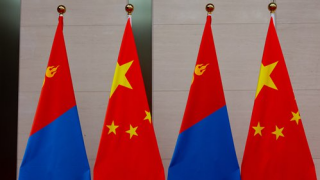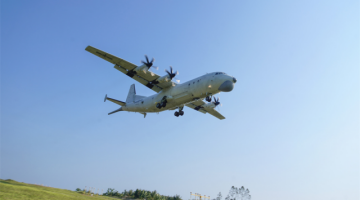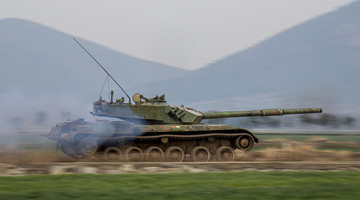After the “September 11” terrorist attack in New York, NATO immediately activated the core articles of “collective defense” to vow support for the US; now they decided to pull troops from Afghanistan almost simultaneously – the US and Europe seem to have aligned their actions during the Afghanistan war going on for almost 20 years. Yet under the ostensible uniformity is often their separate calculations and sometimes conflicts.
As the European allies didn’t play much of a productive part in the Kosovo War, the US, when waging war against Afghanistan on October 7, 2001, only brought on the British troops to attack the Taliban regime without involving NATO militarily.
It wasn’t until the collapse of the Taliban regime over two months later that the sidelined NATO was brought into the picture. According to Resolution 1386 adopted by the United Nations Security Councilin December 2001, an International Security Assistance Force (ISAF ) was formed and dispatched to Afghanistan, mainly comprising troops from NATO members.
In August 2003, NATO officially took over the command of ISAF, and the AfghanistanWar was elevated into a large-scale overseas military intervention whereby NATO left the European defense area for the first time.
The US has made itself a well-thought plan – using Afghanistan as the biggest testing field to push NATO’s strategic transformation to become a global bloc, consolidating the military results in Afghanistan as a way to cement its leading position in NATO and, in the meantime, suppressing the European allies’ nascent trend for “independence” from the US. Some European commentators vividly described the Washington-envisioned division of work – Americans make the supper, Europeans clean the plates.
However, the “old European countries,” like France and Germany, have always opposed NATO posing as a “world cop” and unlimitedly expanding the scope of its military operations. They don’t want to serve America’s interests in areas not vital for European interests, so as to stay away from trouble.
This explains the passive attitude of European countries, notably France and Germany, in Afghanistan – their troops are stationed only in the relatively stable western and northern parts of the country and are prohibited from carrying out dangerous operations other than self-defense. German troops only patrol in armored vehicles in the daytime and would never leave the camp at night.
In fact, other than the two iron-clad followers of Britain and Canada, even when French and German troops receive requests for assistance from friendly counterparts, the frontline commanders would often say no on the excuse that they have to ask for the government’s permission and could not make decisions without authorization.
Just when NATO was bogged in the quagmire of the AfghanistanWar, France took the chance to call for a more specific division of work between NATO and EU, meaning NATO will be tasked with accomplishing major and long-term operations. At the same time, the EU will be responsible for military interventions in Europe and surrounding areas. In May 2012, soon after the NATO Chicago Summit decided to hand over the defense roadmap back to Afghanistan, France was the first to call back its troops from there in July, followed by Italy and Spain.
While the “old European countries” are dragging their feet, “new European countries” in central and eastern Europe, who once actively followed NATO to Afghanistan, have gone back on their words as circumstances change and strongly demanded NATO withdraw from Afghanistan. What Russia has done in its war with Georgia has exacerbated these countries’ “Russophobia”.
For fear of falling victim to the deals between major countries, central and eastern European countries have been asking NATO to pay more attention to security issues in Europe rather than getting too involved outside the local defense area. After the Ukraine crisis, they pushed NATO to commit at the London Summit in September 2014 to getting back to its duty of collective defense.
“Pretending agreement while harboring separate plans” is what is happening between the US and Europe. On the Afghan issue, European allies are going their own way to serve national interests though still pledging to follow America’s “lead”; on multilateral cooperation and other issues, they have bluntly voiced different opinions from the US. Also, this shows that the US-Europe relationship, building not on an equal footing, has not been any monolith, and looking forward, their cracks will only widen.









